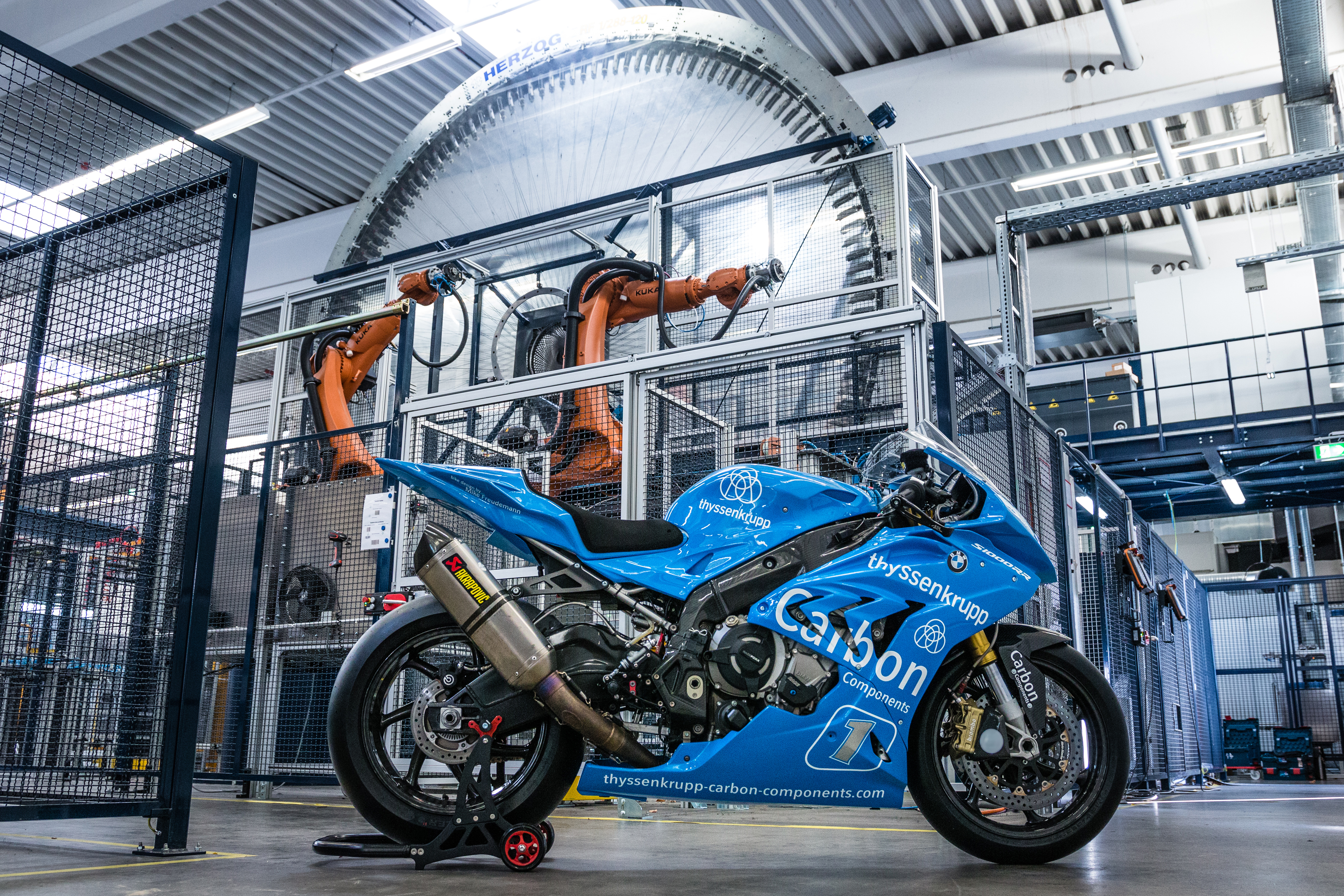
Henkel says that it is expanding its Loctite MAX polyurethane (PU) matrix resins portfolio by adding a new range of materials based on epoxy.
The new range is suitable for high temperature applications in automotive, such as wheels, according to the company, adding that Loctite MAX5, Loctite MAX5 NextGen and MAX6 resin systems can help improve weight-savings, productivity and customization of parts with superior thermal, mechanical and visual properties.
MAX5 NextGen can be processed using all common liquid molding techniques, including high-pressure resin transfer molding (HP-RTM) for higher volume production rates.
Loctite MAX6 offers a Tg of >270°C and a K1C of >1.0 for components operating at high service temperatures.
Resin applications
Henkel recently supplied materials for braided carbon motorcycle wheels manufactured by thyssenkrupp Carbon Components. The matrix resin helped provide short mold filling times as well as fast curing and the composite wheels can save up to 1.8 kg of rotating mass versus conventional forged aluminum designs, Henkel claims.
‘Apart from helping OEMs and Tier 1 suppliers reduce weight on modern vehicles and two-wheelers, we had identified a growing need for composite wheel materials that would also provide higher heat resistance and toughness while satisfying demands of greater production volumes and customized surface aspect,’ said Konrad Brimo Hayek, senior business development manager at Henkel.
This story is adapted from material from Henkel, with editorial changes made by Materials Today. The views expressed in this article do not necessarily represent those of Elsevier.


